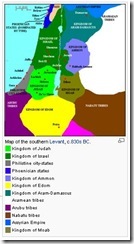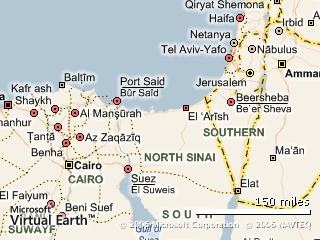"Anyone with ears to hear should listen and understand."
- Jesus
Jesus told stories that contained a deeper truth or meaning; he told these stories to convey a lesson. For example, you could read one parable and think it is about not wasting food, not insulting a peer, how to take revenge when insulted... or see it as story of salvation.
Jesus' biography is very short even though the authors recognized the importance of His life. We must conclude that everything in that biography is there for a reason. Not just stories and parables, but even specific events in Christ's life are recorded for a reason as a lot was left out. As every event is not recorded, we must then ask, "why is this here?" and dig for the deeper truth or meaning. If we do not understand the true meaning, are we outsiders?
Every time I've read or heard the story of the "three kings" I've only had the simple thought that Jesus is worthy of being worshipped by all people, regardless of class. Is that the true purpose of this story or is there something more to be gleaned?
A Game of Telephone
This has got to be the most fictionalized story in the Bible, except for maybe Noah's Ark. I'm not saying the Biblical account is not true, I'm saying the story has been altered, romanticized, embellished, whatever.
Here we go: there is nothing saying there were three Magi; they weren't kings; they did not visit Christ at the manger; and there is no mention of animals or shepherds visiting at the same time as the Magi.
This page explains the following:
- Some early Christian records and art depict from 2 to 8 magi; eastern religion says there were 12.
- Magi were religious leaders of the sacred caste of Medes and not kings or magicians. It is possible they were educated in astrology (note: not astronomy).
- They weren't necessarily from Persia, although they were probably from the Parthian Empire and crossed the Syrian Desert.
- Christ was not an infant in the stable because He had already been presented at the Temple and Matthew mentions the visit occurring in a "house."
A Star
Was it a star, comet, planetary movements, or floating beacon? Matthew writes in verse 2 that the Magi said, "...We saw his star as it rose..." So we have "astrologers" calling it a star; comets and planets were known cosmological objects. Can Magi, astrologers, wise men, not recognize a star when they see one?
Matthew later writes in 9 that the star guided them to Bethlehem and "went ahead of them and stopped over the place where the child was." Neither the motion of the heavens, Earth nor paralax can explain such a phenomenon. Remember, the Earth is spinning as the Magi walk; only the North Star is a fixed heavenly reference point. Imagine now a star that first is used as a point of reference to a town, in a specific direction while they travel for hours (or days), and then stops over a house! How would that look to the observer? From the front door the star is over the house, walk around the back and it is still over the house? A star! Way, way up in the sky! How could they possibly get a bearing on one specific house off a star that is light years away?
Keep in mind no one else notices this star.
Not A Star
Maybe it wasn't a star, but like a star. If you are thinking comets or odd planetary motion then apply the same arguments above except substitute "thousands of miles" for "light years." I believe the "star" is a bright point of light that existed within our atmosphere, created by God. After all, God has done things like this before. A light created by God would explain the motion and also explain oddities such as:
- Why did only the Magi recognize the star?
- Why reveal the star to non-Jews?
- Why didn't the star lead them directly to Christ, making the visit to Herod unnecessary?
Regardless, we do not need to find a natural explanation for the "star"; if you can't believe God made a ball of light or made a natural star move then are you really equipped to believe He lived among us?
The Magi Seek Him...
Keep in mind these Magi were not Jews but pagans. They obviously had some limited knowledge of Judaism because they knew of the Messiah and knew He was important enough to recognize, praise, and worship. How much did they know? Not enough to know where prophecy said the Messiah would be born and perhaps not enough to know what the Messiah was (God incarnate).
The Magi came a long way to praise the Messiah. This is obviously God inspired (unless you are a Jehovah's Witness, they think Satan did it). I can't help but wonder why God would choose pagan, non-Jews for this roll. I'm sure there were Jews in powerful positions in distant lands. Regardless, they came a long way and valued Him greatly (both with gifts and praise) which is in stark contrast to the Jews who lived near Jesus and were "deeply disturbed."
A star rose and lead them West. The star was specific enough to hover over Jesus' house but for some reason didn't guide the Magi around or through Jerusalem. The Magi actually thought Herod would tolerate a "king of the Jews," an unwise decision. This mistake lead to the Massacre of the Innocents. However, it also lead to Jesus being taken to Egypt to fulfill the prophecy in Hosea 11:1.
What to give God on Earth? Talk about someone who has everything... These gifts are "State" gifts, they basically say, "We Magi of Persia recognize and believe you to be king of the Jews." This falls in line with Matthew's goal of showing Jesus' "kingship." Obviously the Magi were looking for a king because they said so to Herod, again support for Matthew's goal. Interestingly, the gifts fall off of the record. I wonder if they were used as currency for the trip to Egypt.
If a star lead you to God on Earth would you go home or would you buy the house next door? For this reason my guess would be they didn't understand the significance of the Messiah and it was simply a "State" visit, e.g. one government recognizing another. Interestingly, these pagans believed in Him as the Jewish Messiah. Are they saved by their faith? Are they the first Gentile Christians?
Everyone is Disturbed
Herod is disturbed for obvious reasons. He is currently the "king" of the Jews (and in bed with the Romans) and doesn't want another Jewish king coming around making trouble... The Jewish Messiah is a human who leads all Jews back to Israel where an era of piece follows. How could this happen without kicking the Romans (and Herod) out? The common Jews in the city were probably disturbed because (a) they were afraid of Herod's response and (b) they would recognize the coming of the Messiah as a future war call and didn't know how the Romans would react.
However, this does not explain the "leading priests and teachers." They told the Magi where to go yet did not go with them. Why wouldn't these priests be excited and want to get in on the ground floor of the new administration? Not to mention having an opportunity to put their eyes on the Messiah! Maybe they, too, feared the implications with Herod and the Romans?
Praises!
This is an amazing Bible story that lead me down many paths. Here is what I got out of it:
- Matthew already described how Jesus is the Jewish king via His lineage. Now Matthew is showing how Jesus should be recognized as king by all of the world's leaders.
- This story foreshadows the pattern of the crucifixion. When Herod and the Jews learn of the Messiah's birth the Jews reject Him and the Roman leader orders His death.
- Illustrates that those who have the greatest distance to reach God will value Him the most.
- Because we can not predict what God is going to do we should act like the Magi and look for how God reveals Himself to us; we should not be the religious leaders who are concerned about this world.
- Don't forget the star! God can do anything and He is sovereign.
Post Script
The paragraph on kneeling and prostration here is interesting, read more about it.


